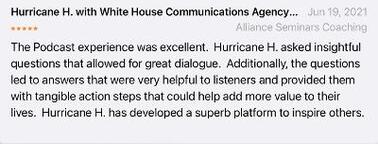|
Medicare is a federal health insurance program primarily for people aged 65 and older, as well as for certain younger individuals with disabilities and those with end-stage renal disease (ESRD). It provides coverage for various healthcare services, including hospital stays, medical appointments, preventive care, and prescription drugs. Here are some key points about Medicare:
Parts of Medicare: Medicare is divided into several parts, each covering different types of services: Medicare Part A (Hospital Insurance): Covers inpatient hospital stays, skilled nursing facility care, hospice care, and some home health care services. Medicare Part B (Medical Insurance): Covers outpatient medical services, such as doctor's visits, preventive care, lab tests, durable medical equipment, and some home health care services. Medicare Part C (Medicare Advantage): Offered by private insurance companies, Medicare Advantage plans provide all Part A and Part B benefits, often including prescription drug coverage (Part D), and may offer additional benefits like vision, dental, and hearing coverage. Medicare Part D (Prescription Drug Coverage): Provides coverage for prescription drugs through private insurance plans approved by Medicare. Eligibility: Most people become eligible for Medicare when they turn 65, but eligibility can also be based on disability or ESRD. Individuals who are already receiving Social Security or Railroad Retirement Board benefits are usually enrolled automatically in Medicare when they become eligible. Enrollment: There are specific enrollment periods for Medicare: Initial Enrollment Period (IEP): Begins three months before the month of an individual's 65th birthday and ends three months after their birthday month. Annual Enrollment Period (AEP): Occurs each year from October 15 to December 7, during which individuals can make changes to their Medicare coverage. Special Enrollment Periods (SEPs): Allow individuals to enroll in or make changes to their Medicare coverage outside of the standard enrollment periods under certain qualifying circumstances. Costs: While some aspects of Medicare, like Part A, may be premium-free for most beneficiaries, there are costs associated with other parts of Medicare, including deductibles, copayments, and premiums. The specific costs vary depending on the type of Medicare coverage and the individual's circumstances. Supplemental Coverage: Many beneficiaries choose to purchase additional coverage, such as Medicare Supplement Insurance (Medigap) policies, to help cover out-of-pocket costs not covered by Original Medicare. These policies are offered by private insurance companies and help fill in the gaps in Medicare coverage. Overall, Medicare plays a crucial role in providing healthcare coverage to millions of Americans, ensuring access to essential medical services and helping to protect against the financial burden of healthcare costs in retirement or during periods of illness or disability. A Little more about Part C. Medicare Part C, also known as Medicare Advantage, is a type of Medicare health plan offered by private insurance companies that contract with Medicare to provide all Part A (hospital insurance) and Part B (medical insurance) benefits. In addition to covering hospital stays and medical services, Medicare Advantage plans may offer additional benefits such as prescription drug coverage (Part D), vision, dental, hearing, and wellness programs. Here are some key points about Medicare Part C: Coverage Integration: Medicare Advantage plans combine the benefits of Medicare Part A and Part B into a single plan. This means that beneficiaries receive their hospital and medical coverage through their Medicare Advantage plan rather than through Original Medicare. Variety of Plan Options: Medicare Advantage plans come in various types, including Health Maintenance Organizations (HMOs), Preferred Provider Organizations (PPOs), Private Fee-for-Service (PFFS) plans, Special Needs Plans (SNPs), and others. Each type of plan may have different rules and restrictions regarding network coverage, referrals, and out-of-pocket costs. Additional Benefits: Many Medicare Advantage plans offer benefits beyond what is covered by Original Medicare, such as prescription drug coverage, vision, dental, hearing, fitness memberships, and telehealth services. These extra benefits can vary depending on the plan and the insurance company offering it. Costs and Premiums: Medicare Advantage plans may have premiums in addition to the Part B premium paid to Medicare. However, some plans have $0 premiums, particularly HMOs. Beneficiaries are still responsible for paying their Part B premium, along with any applicable copayments, coinsurance, and deductibles required by the plan. Out-of-Pocket Maximum: Medicare Advantage plans have an annual out-of-pocket maximum, which limits the amount beneficiaries have to pay for covered services in a given year. Once the out-of-pocket maximum is reached, the plan typically covers 100% of covered services for the remainder of the year. Provider Networks: Most Medicare Advantage plans have provider networks, meaning beneficiaries may need to use doctors, hospitals, and other healthcare providers within the plan's network to receive full coverage. Some plans offer out-of-network coverage, but it may come with higher costs. Annual Enrollment Period: Beneficiaries can generally enroll in, switch, or disenroll from a Medicare Advantage plan during the Annual Enrollment Period (AEP), which runs from October 15 to December 7 each year. Additionally, there are other enrollment periods, such as the Initial Enrollment Period (IEP) and Special Enrollment Periods (SEPs), during which individuals may be eligible to enroll in or make changes to their Medicare Advantage coverage. Overall, Medicare Part C, or Medicare Advantage, offers beneficiaries an alternative way to receive their Medicare benefits through private insurance plans, often with additional benefits and services beyond what is covered by Original Medicare. A little more about Med Supps, Medicare Supplement Insurance, also known as Medigap, is private health insurance designed to supplement Original Medicare (Part A and Part B) coverage by helping to pay for some of the out-of-pocket costs that Medicare does not cover. Here are some key points about Medicare Supplement Insurance:Coverage Standardization: Medicare Supplement plans are standardized by the federal government, meaning that each plan type offers the same basic benefits, regardless of which insurance company sells it. There are ten standardized plans labeled A, B, C, D, F, G, K, L, M, and N. However, not every insurance company offers all plan types. Basic Benefits: Medicare Supplement plans typically help cover some or all of the following out-of-pocket costs associated with Original Medicare: Medicare Part A coinsurance and hospital costs Medicare Part B coinsurance or copayments Blood (first three pints) Part A hospice care coinsurance or copayments Skilled nursing facility care coinsurance Part A deductible Part B deductible (for Plan C and Plan F only) Part B excess charges (charges above the Medicare-approved amount) Freedom of Choice: With Medicare Supplement plans, beneficiaries have the freedom to see any doctor or specialist who accepts Medicare, without being restricted by network limitations. This flexibility can be especially valuable for individuals who travel frequently or who live in areas with limited healthcare provider options. Premiums: Medicare Supplement plans typically require monthly premiums in addition to the premiums paid for Medicare Part B. The premium amount varies depending on factors such as the plan type, the insurance company, the beneficiary's age, and the location. Guaranteed Issue Rights: In most states, beneficiaries have a guaranteed issue right to purchase a Medicare Supplement plan during certain time frames, such as the six-month Medigap Open Enrollment Period that starts when they are both 65 or older and enrolled in Medicare Part B. During this period, insurance companies cannot deny coverage or charge higher premiums based on pre-existing conditions. Medicare Prescription Drug Coverage: Medicare Supplement plans do not include prescription drug coverage. Beneficiaries who want prescription drug coverage must enroll in a standalone Medicare Part D Prescription Drug Plan. Renewability: As long as premiums are paid, Medicare Supplement plans are guaranteed renewable, meaning that insurance companies cannot cancel the policy as long as the beneficiary continues to pay the premiums. Overall, Medicare Supplement Insurance can provide valuable financial protection and peace of mind by helping to cover some of the out-of-pocket costs associated with Original Medicare. It's important for beneficiaries to compare plan options carefully and choose the one that best meets their healthcare needs and budget.
0 Comments
Leave a Reply. |
AuthorA seasoned healthcare sales executive and a leader with 26 years of Health Insurance and Managed Care experience, a strategist, innovator and motivator with a vast and deep understanding of Managed Care Organizations and the health insurance industry and its critical nuances and complex design.. Archives
June 2024
Categories |
AS SEEN ON
DISCLAIMER: The information provided in our programs including health shows, discussions on fitness, wellness, business, and any other topic we engage with and address, is for informational, sharing resources and entertainment purposes only. It is not intended as a substitute for professional advice, consultation, or guidance. Viewers should always seek the advice of qualified experts or professionals in the respective fields before making any decisions or taking any actions.
While we strive to provide accurate and up-to-date information, we make no representations or warranties of any kind, express or implied, about the completeness, accuracy, reliability, suitability, or availability of the information contained in our health shows or discussions on other topics. Any reliance you place on such information is therefore strictly at your own risk.
We strongly encourage viewers to do their due diligence and independently verify any information presented in our health shows or discussions on other topics before making any decisions or taking any actions. This includes consulting with appropriate experts or professionals who can assess your specific situation and provide personalized advice.
We, THE EMBC NETWORK and its channels, affiliates, officers, directors and guests shall not be held liable for any loss or damage, including but not limited to, indirect or consequential loss or damage, arising from the use of, or reliance on, the information presented in our health shows or discussions on other topics.
By accessing and viewing our programming and shows or participating in discussions on other topics, you acknowledge and agree to the terms of this disclaimer and take full responsibility for any actions you take based on the information provided.
While we strive to provide accurate and up-to-date information, we make no representations or warranties of any kind, express or implied, about the completeness, accuracy, reliability, suitability, or availability of the information contained in our health shows or discussions on other topics. Any reliance you place on such information is therefore strictly at your own risk.
We strongly encourage viewers to do their due diligence and independently verify any information presented in our health shows or discussions on other topics before making any decisions or taking any actions. This includes consulting with appropriate experts or professionals who can assess your specific situation and provide personalized advice.
We, THE EMBC NETWORK and its channels, affiliates, officers, directors and guests shall not be held liable for any loss or damage, including but not limited to, indirect or consequential loss or damage, arising from the use of, or reliance on, the information presented in our health shows or discussions on other topics.
By accessing and viewing our programming and shows or participating in discussions on other topics, you acknowledge and agree to the terms of this disclaimer and take full responsibility for any actions you take based on the information provided.
'Privacy Policy for Mobile App Usage on iOS and Android Platforms'
|
 RSS Feed
RSS Feed



























